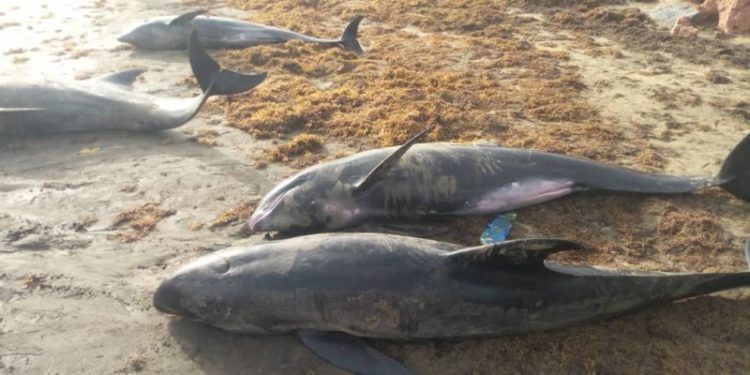According to preliminary scientific investigation by the University of Ghana’s Marine and Fisheries Sciences Department, low oxygen concentration is the cause of recent fish deaths in the region.
With the exception of Chemical Oxygen Demand (COD), which was considerably higher than predicted, findings from water quality research showed that most parameters needed for life in the ocean were within reasonable limits, according to the Department.
According to a press release, increased oxygen demand will more certainly stress living species that depend on dissolved oxygen in the water body.
The results are consistent with the findings of the Fisheries Commission, which concluded that stress factors were to blame for the deaths.
According to the statement, a sharp decrease in sea surface temperature was detected from satellite imageries over the coast from Cote d’Ivoire to Togo just days before the fish kills.
“This is most definitely an indicator of upwelled water from the ocean’s depths, and is likely deficient in oxygen. “At this time, we don’t have any information on what caused these incidents,” it said.
The statement urged the development of an ocean-monitoring network as soon as possible.
In terms of the risk of a toxic algal bloom, the scientific preliminary investigation found phytoplankton abundance to be insufficient to produce a bloom, according to the statement.
“It should be remembered that phytoplankton organisms that can trigger blooms and fish kills have always been present in our waters. It’s their higher-than-normal amounts that might trigger a dangerous bloom, according to the study.
The Department will continue to oversee oceanographic processes and coordinate if required, according to the announcement.
It was noticed that both demersal and pelagic fish species of small and large sizes were destroyed.
It said, “We affirm the identity of the marine mammals discovered dead along the coast as the melon-headed whale, a dolphin belonging to the Cetacean order.”
The announcement reaffirmed the Department’s request for the government to purchase a study vessel that will conduct routine surveillance of the country’s coastal waters in order to “avoid any potential catastrophe.” The effects of global climate change and their vulnerability are real, and coastal states are the hardest hit, according to the study.
Read Also: The motion to compel Achimota School to ‘temporarily’ accept a Rasta pupil was denied by the court
SOURCE: ATLFMONLINE

























